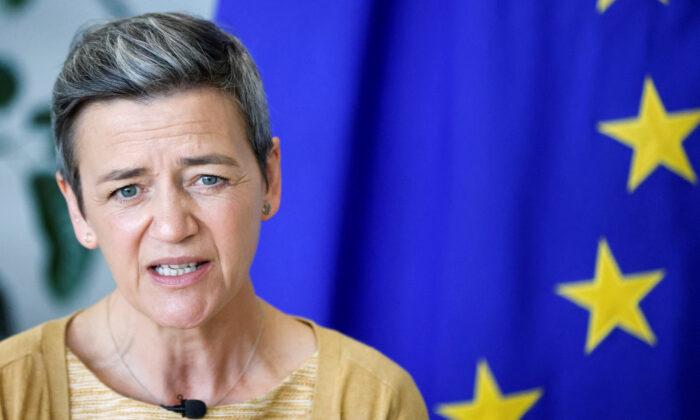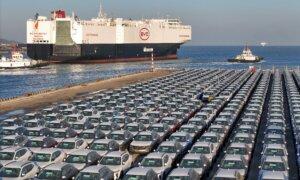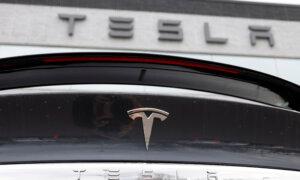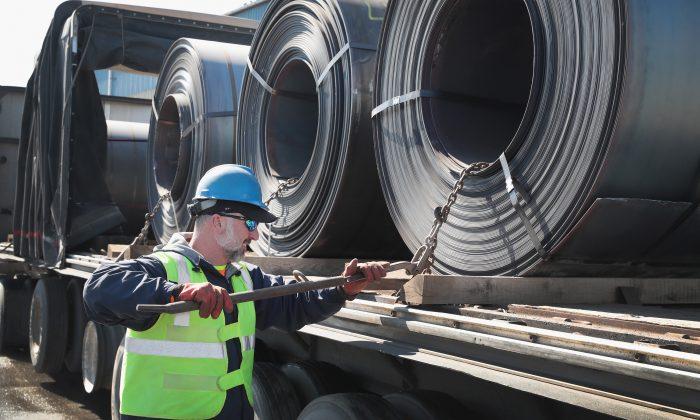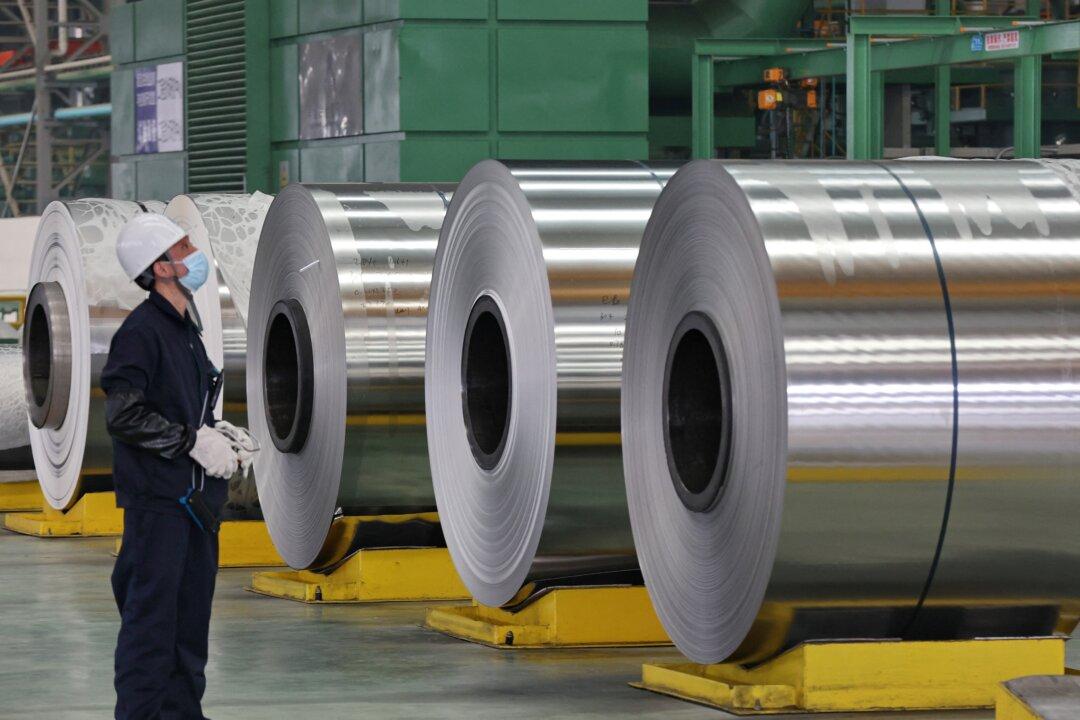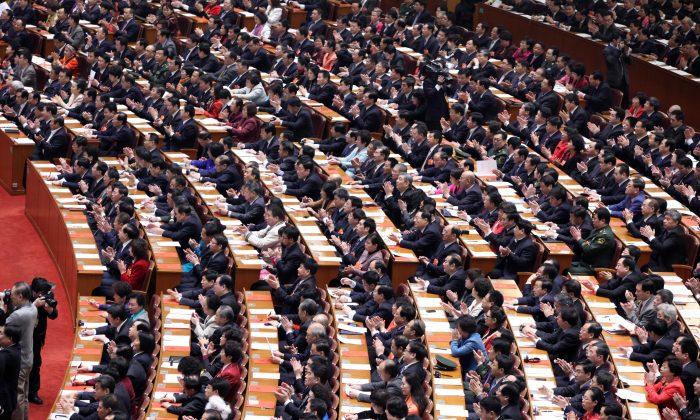Following the investigations into electric vehicles (EVs), trains, and solar panels, the European Union (EU) has launched a probe into China’s wind turbines. The EU’s antitrust commissioner, Margrethe Vestager, said a systemic approach is needed to prevent a repeat of past mistakes.
On April 9, the European Commission announced an investigation into Chinese wind turbine suppliers to determine if the Chinese regime’s subsidies provided them with an unfair advantage in the EU market.
Subsidy Investigations
On April 3, the European Commission announced an investigation into two Chinese solar panel companies, including a subsidiary of LONGi Green Energy Technology Co., Ltd., one of the world’s major manufacturers of solar modules and a developer of solar power projects. The investigation is expected to be completed within four months.Both companies participated in tenders for solar-powered industrial parks in Romania. The European Commission stated that there was sufficient evidence to suggest that these two Chinese companies had received subsidies from the Chinese regime, distorting market conditions.
On Feb. 16, the European Commission also announced an investigation into a subsidiary of CRRC Corporation Ltd, the Chinese state-owned railway giant and the world’s largest rolling stock manufacturer. The company is suspected of receiving subsidies from the Chinese regime, distorting the EU market.
Since October last year, the European Commission also initiated anti-subsidy investigations into EVs imported from China. If sufficient evidence is found, punitive tariffs may be imposed.
In the past two years, the export of EVs from China to the EU market has increased significantly. According to data from China’s General Administration of Customs, in the first eight months of last year, China exported 339,000 EVs to the EU, an increase of 95 percent year-on-year.
Past Lessons
On April 9, Ms. Vestager said in her speech, “Every time we suspect that any foreign company has been unduly advantaged in a public tender, we dig further.” She stated that the investigations have already led to the Chinese state-owned CRRC subsidiary withdrawing its bid in a public tender for trains in Bulgaria.According to German public broadcaster Deutsche Welle, when China’s solar industry entered the EU market, its huge capacity and low prices made it impossible for European solar energy companies to survive. In just a few years after 2011, many European companies went bankrupt. Q-Cells, which applied for bankruptcy proceedings in 2012, was once the world’s largest solar cell manufacturer.
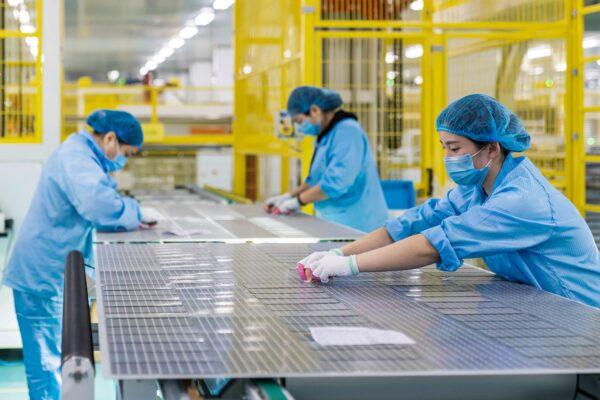
According to Ms. Vestager, the EU relies heavily on Chinese photovoltaic products. In her speech, she said that less than 3 percent of solar panels installed in the EU are now produced in Europe.
The anti-trust commissioner added that the reliance has raised concerns, especially after the outbreak of the Russia-Ukraine War, making the energy transition more urgent for the EU.
Beijing’s Heavy Subsidies
On April 10, a new study by the Kiel Institute for the World Economy (KIEL) in Germany alleges that the Chinese regime heavily subsidizes domestic industries, especially green technologies such as EVs and wind energy. The study estimates that the total amount of government subsidies in China is estimated to be three to nine times that of other OECD countries such as the United States or Germany.The study claimed that Chinese EV manufacturer BYD is one of the main beneficiaries. Its direct subsidies received in 2020 were estimated to be around €220 million ($233 million), skyrocketing to €2.1 billion ($2.23 billion) in 2022. According to the study, these subsidies have led to significant expansion of BYD’s technology and capacity and continuous enhancement of competitiveness.
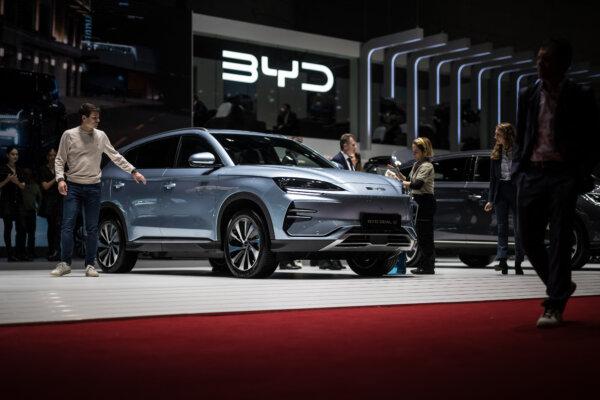
KIEL alleged that government subsidies are widespread in China, with over 99 percent of listed companies receiving direct subsidies from the government in 2022.
The study said that Chinese companies are rapidly expanding in various green technology fields. In addition to direct subsidies, these companies also receive other support measures from the Chinese regime, such as priority access to key raw materials, forced transfer of technology from foreign investors, and preferential treatment in public procurement and administrative procedures. These companies not only dominate the Chinese market but are also taking over the EU market.
Although Western countries sometimes provide subsidies to companies, they are fundamentally different from those provided by China.
China’s Future Agenda
To offset the severe downturn in China’s real estate sector, the Chinese Communist Party (CCP) is directing investment into the vast manufacturing sector. Supported by cheap loans and subsidies, Chinese companies are seeking overseas buyers for the massive surplus of goods that the domestic market cannot consume. However, now it seems that neither the EU nor the United States is willing to tolerate this anymore.On April 9, Secretary of Treasury Janet Yellen left Beijing after her visit. She stated at a press conference the day before that the focus of her trip was to address the problem of overcapacity in China’s EVs, solar panels, and other clean energy products, which poses a threat to manufacturers in the United States and other countries.
